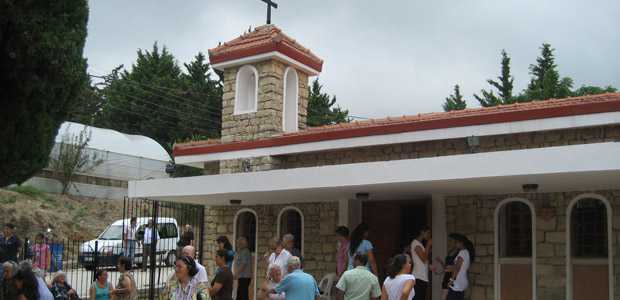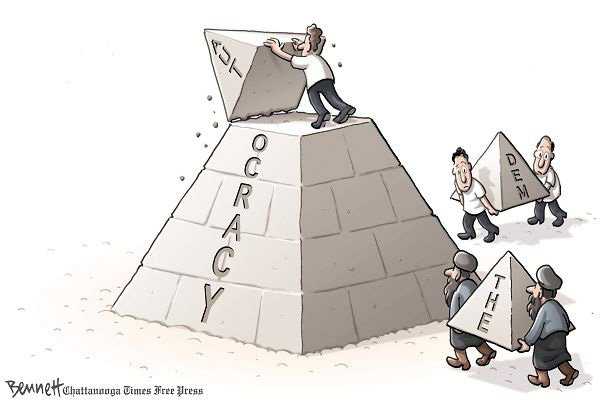Turkish people! Instead of handwringing and moaning, ACT! Turkish people, you heirs of the Atatürk Revolution, Mustafa Kemal Atatürk gave you the right (and responsibility) to save your country. https://yunus.hacettepe.edu.tr/~sadi/dizeler/hitabe2.html ) Fight the rush-to-judgment efforts of the Armenian Genocide lobby. Every “Turkish child of future generations” should demand that their parliament immediately enact a resolution that condemns the American Indian Genocide. Turkish people…ACT! Defend your country against the dark powers that Mustafa Kemal Atatürk foresaw over eighty years ago. The facts of the catastrophe done to the American Indians are in plain sight and beyond dispute. Spain, Portugal, England, and, most importantly, the United States of America should stand condemned in the eyes of the world for the crimes committed against the aboriginal population in the Americas.
More than 200 million Indians lost their lives on the combined North, Central, and South American continents after Columbus landed in 1492. The Indians in South and Central America were mostly enslaved to extract precious metals. The Indians in North America were displaced, starved, and slaughtered to make way for the enormous flow of European immigrants. Vast numbers died from European diseases, perhaps the first weapon of mass destruction, in this case, biological warfare. Surely Turkey has the right to defend itself from the Western claims of genocide, given the historically bloody hand of the West.
From approximately 15-18 million North American Indians present in the days of Columbus, only 190,000 were left in the territorial United States in 1890. The destruction of the Southern Indians (the Cherokee, Choctaw, Chickasaw, and Creek tribes) resulted in the seizure and clearance of their enormously fertile forest lands (the Southern black belt) in order to expand both slavery and cotton production in Arkansas, Alabama, and Mississippi. In this manner, the red and black races were displaced, enslaved, and murdered in order for white America to prosper. The proof of this assertion is fully documented and unassailable.
On the other hand, Turkey has welcomed the persecuted minorities of many nations. The same year that the destruction of the American Indians began, 1492, Turkey’s Sultan Bayezit II accepted with kindness and consideration the Jews expelled from Spain and Portugal. Similar compassion was rendered to Jews centuries later who fled Hitler’s genocide. Surely Turkey has the right, the responsibility, and moral authority to counter the orchestrated, poorly documented, rush-to-judgment of the Armenian Lobby and its collaborators, both western and Turkish.
The horrific destruction of the sophisticated Native American cultural system was encouraged by the government of the United States, particularly under the administration of that so-called champion of so-called democracy, Andrew Jackson. By 1890, the American Indians were finished. Their numbers had been reduced by 98 percent over the 400 years since Columbus landed. By 1890 the United States government had seized 98 percent of their land. No greater genocide or land grab has existed in the history of the world. Surely Turkey has the right to challenge the unproven claim of so-called genocide by affirming through parliamentary resolution the well-documented genocide of an entire race of people by an act of policy by the government of the United States of America.
It is high time that Turkey takes the offensive on the matter of genocide. In this day of widespread destruction, it is high time to remind America, Americans, and their government, that they are up to their ancestral elbows in the blood of the American Indians. The Turkish government must condemn the American Indian Genocide, or itself be condemned. And if you, the Turkish people, think that makes you a traitor, then read again Nazım Hikmet’s magnificent poem, Vatan Haini (“Traitor”) below, along with Atatürk’s statement of your “primary duty.”
Cem Ryan, Ph.D.
Istanbul
21 December 2008
“Nazim Hikmet is still continuing to be a traitor,
We are a half-colony of American imperialism, said Hikmet.
Nazim Hikmet is still continuing to be a traitor.”
This came out in one of the Ankara newspapers,
Over three columns, in a pitch-black screaming streamer.
In an Ankara newspaper, beside a photograph of Admiral Williamson,
smiling in 66 square centimeters, his mouth in his ears,
the American admiral.
America gave 120 million lira to our budget, 120 million lira.
“We are a half-colony of American imperialism, said Hikmet.
Nazim Hikmet is still continuing to be a traitor.”
Yes, I am a traitor, if you are a patriot, if you are a defender of our homeland,
I am a traitor to my homeland, I am a traitor to my country.
If patriotism is your farms,
if the valuables in your safes and your bank accounts is patriotism,
if patriotism is dying from hunger by the side of the road,
if patriotism is trembling in the cold like a cur and shivering from malaria in the summer,
if sucking our scarlet blood in your factories is patriotism,
if patriotism is the claws of your village lords,
if patriotism is the catechism, if patriotism is the police club,
if your allocations and your salaries are patriotism,
if patriotism is American bases, American bombs, and American missiles,
if patriotism is not escaping from our stinking black-minded ignorance,
then I am a traitor.
Write it over three columns, in a pitch-black screaming streamer,
Nazim Hikmet is continuing to be a traitor, STILL!
Nazim Hikmet
28 July 1962
(Translation: Hüda Cereb and James Ryan, 1 June 2005)
That is the sole foundation of your existence and your future. This foundation is your most precious treasure. In the future, too, there will be ill-will, both in the country itself and abroad, which will try to tear this treasure from you. If one day you are compelled to defend your independence and the Republic, then, in order to fulfill your duty, you will have to look beyond the possibilities and conditions in which you might find yourself.
Even under those circumstances, O Turkish child of future generations, it is your duty to save the independence of the Turkish Republic.
The strength that you will need for this is mighty in the noble blood which flows in your veins.
Mustafa Kemal Atatürk
20 October 1927
https://yunus.hacettepe.edu.tr/~sadi/dizeler/hitabe2.html
“Nâzım Hikmet vatan hainliğine devam ediyor hâlâ.
Amerikan emperyalizminin yarı sömürgesiyiz,” dedi Hikmet.
“Nâzım Hikmet vatan hainliğine devam ediyor hâlâ.”
Bir Ankara gazetesinde çıktı bunlar, üç sütun üstüne, kapkara haykıran puntolarla,
bır Ankara gazetesinde, fotoğrafı yanında Amiral Vilyamson’un
66 santimetre karede gülüyor, ağzı kulaklarında, Amerikan amirali
Amerika, bütçemize 120 milyon lira hibe etti, 120 milyon lira.
“Amerikan emperyalizminin yari sömurgesiyiz, dedi Hikmet
Nâzım Hikmet vatan hainliğine devam ediyor hâlâ.”
Evet, vatan hainliğine, siz vatanperverseniz, siz yurtseverseniz, ben yurt
hainiyim, ben vatan hainiyim.
Vatan ciftliklerinizse,
kasalarınızın ve çek defterlerinizin içindekilerse vatan,
vatan, şose boylarında gebermekse açlıktan,
vatan, soğukta it gibi titremek ve sıtmadan kıvranmaksa yazın,
fabrikalrınızda al kanımızı içmekse vatan,
vatan tırnaklarıysa ağalarınızın,
vatan, mızraklı ilmühalse, vatan, polis copuysa,
ödeneklerinizse, maaşlarınızsa vatan,
vatan, Amerikan üsleri, Amerikan bombası, American donanması topuysa,
vatan, kurtulmamaksa kokmuş karanlığımızdan,
ben vatan hainiyim.
Yazın üç sütun üstüne kapkara haykıran puntolarla:
Nâzım Hikmet vatan hainliğine devam ediyor hâlâ.
Nazım Hikmet
https://nazimhikmet.fisek.com.tr/siir/vatanhaini.htm
Ey Türk gençliği! Birinci vazifen, Türk istiklâlini, Türk Cumhuriyet’ini, ilelebet, muhafaza ve müdafaa etmektir.
Mevcudiyetinin ve istikbalinin yegâne temeli budur.
Bu temel, senin, en kıymetli hazinendir.
İstikbalde dahi, seni bu hazineden mahrum etmek isteyecek, dahilî ve haricî bedhahların olacaktır. Bir gün, istiklâl ve cumhuriyeti müdafaa mecburiyetine düşersen, vazifeye atılmak için, içinde bulunacağın vaziyetln imkân ve şeraitini düşünmeyeceksin!
Bu imkân ve şerait, çok nâmüsait bir mahiyette tezahür edebilir.
İstiklâl ve cumhuriyetine kastedecek düşmanlar, bütün dünyada emsali görülmemiş bir galibiyetin mümessili olabilirler. Cebren ve hile ile aziz vatanın, bütün kaleleri zaptedilmiş, bütün tersanelerine girilmiş, bütün orduları dagıtılmış ve memleketin her köşesi bilfiil işgal edilmiş olabilir. Bütün bu şeraitten daha elîm ve daha vahim olmak üzere, memleketin dahilinde, iktidara sahip olanlar gaflet ve dalâlet ve hattâ hiyanet içinde bulunabilirler.
Hatta bu iktidar sahipleri şahsî menfaatlerini, müstevlilerin siyasî emelleriyle tevhit edebilirler. Millet, fakr ü zaruret içinde harap ve bîtap düşmüş olabilir.
Ey Türk istikbalinin evlâdı! İşte, bu ahval ve şerait içinde dahi, vazifen; Türk istiklâl ve cumhuriyetini kurtarmaktır!
Muhtaç olduğun kudret, damarlarındaki asil kanda, mevcuttur!
Mustafa Kemal Atatürk
“Nutuk”
20 Ekim 1927







I appreciated and enjoyed your commentary and would like to publish it in my columns at www.turkla.com and www.turkishjournal.com in its entirety, if you give me your permission.
Keep up the good work!
Ergun KIRLIKOVALI: Ergun@turkla.com.
12-24-2008